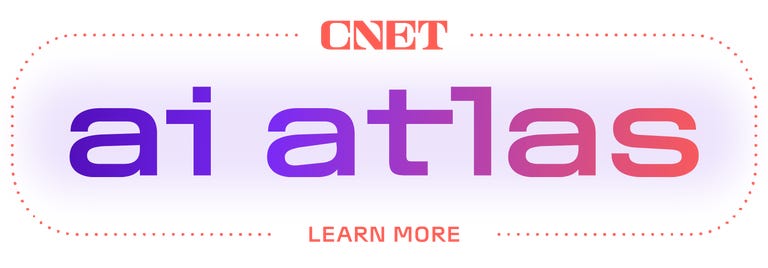You.com wants to be your AI search engine for complex work questions


Computer scientist Richard Socher first had the idea for You.com when he was a PhD student at Stanford, but at the time — 2009 to 2014 — Google seemed untouchable, so he shelved the concept.
But after developments in prompt engineering, the method of creating inputs for generative AI tools to generate desired outputs, and natural language processing, a branch of AI that allows computers to understand human language, he and co-founder Bryan McCann realized that search could evolve into a format with summarized answers. And Google didn’t seem to be moving in that direction.
“We didn’t see any change and so we decided someone had to do it,” Socher said of You.com’s launch in 2020.
The startup hopes to differentiate itself from the likes of Google, OpenAI and Perplexity — all of which now offer or are working on their own blend of search and AI — by tackling more complex queries from enterprise users. Socher even earned a vote of confidence from Time magazine last year when it named him one of the 100 most influential people in AI, saying that “his research in natural language processing has been integral to advancing the field.”
You.com got its name because Marc Benioff, CEO of software company Salesforce, gave the URL to Socher. The two crossed paths when Salesforce acquired Socher’s deep learning platform MetaMind in 2016. Socher was chief scientist and executive vice president at Salesforce until 2020. (It should be noted that Benioff owns Time.)
You.com was a URL Benioff had owned for years. Socher thought it was “a great consumer URL” that opens itself up to wordplay with words that start with you, like user and university.

Now CEO of You.com, Socher focuses on the increasingly popular field of AI-infused search, where platforms do the research and analysis for us and provide answer summaries with quotes. He competes with both search and AI giants for a share of a market projected to achieve $430 billion in 2032.
Search beyond Google
The Palo Alto, California-based startup started out as a search engine, but Socher admitted that Google already has a handle on short, single-answer informational queries like, “Who was the first president of the United States?” or “What is the capital of Maryland?” (Google controls about 90% of the global search engine market.)
“There’s nothing you can do to give that answer 10 times better than Google,” he said.
And so You.com began to focus on knowledge workers, or employees “whose careers really depend on doing things well and coming up with pretty sophisticated answers,” he added. It now sees itself more as an AI assistant or a “productivity machine.”
Instead of these simple searches, You.com aims to generate precise answers to complex searches with relevant citations. These include searches that require researching and summarizing information from multiple websites, as well as solving complex problems in multiple steps.
“Ultimately, it’s about becoming more productive and getting access to answers so you can do the things you want to do,” Socher said.
If it looks like Google’s AI Overviews, OpenAI’s SearchGPT or AI search engine Perplexity, that’s because it is. But You.com pointed out last November that it would have the first consumer-facing LLM with internet access for answers and citations in December 2022, and Socher said he has the patents to prove his company’s technology was there first. (Perplexity’s answer engine also came out in December 2022. AI Overviews debuted in May of this year, and SearchGPT followed in July.)
You.com in action
There are some notable differences. You.com lets you choose from 21 AI models, including GPT-4o (which powers ChatGPT and SearchGPT), Anthropic’s Claude 3.5 Sonnet, Meta’s Llama 3.1 405B, and Google’s Gemini 1.5 Flash, or You.com chooses for you. (It wasn’t immediately clear what criteria it uses in the latter case. A spokesperson did not respond to a request for comment.)
You can also ask You.com to focus on specific sources, such as academic journals.
I briefly asked a question about a long-running mystery: Why is it so hard to prove Bigfoot is real?
You.com issued a 353-word response, citing children’s Q&A site Wonderopolis.org, science and travel publication NationalGeographic.com, online encyclopedia Wikipedia, and science and nature magazine SmithsonianMag.com. The response said it was a combination of lack of evidence, hoaxes and misidentifications, unreliable eyewitness accounts, cultural factors, and scientific skepticism.
Perplexity generated a 313-word response, which also cited SmithsonianMag.com and the science website Live Science. The response also cited lack of evidence, unreliable observations, and cultural factors, as well as ecological improbability.
Other than the width of the sources, I don’t really notice a big difference.
Then I asked, “What is the best search engine that focuses on AI?”
You.com generated a 268-word response, featuring You.com, Perplexity, Neeva, Brave Search, Komo and Arc Search. Sources included SEO agency Boostability, CNET sister publication ZDNet and AI website builder Dorik.com.
There was one mistake: Neeva was bought by the Snowflake data platform in 2023 and the associated search technology was integrated into Snowflake’s platform.
Perplexity provided a 222-word response, with some familiar names mentioned, along with Bing AI and Andi. It also mentioned ZDNet and Dorik, along with blog site KDNuggets and AI resource site AI-Pro.
I’m not sure I’d trust KDNuggets or AI-Pro, but given You.com’s mistake, I’m not sure either one really has an edge.
To be fair, this is just the tip of the iceberg. And You.com is now focused on enterprise use cases, so it is not directly competing with these consumer-facing AI search engines.
In November, You.com released an API that lets developers bring real-time web search to their own LLMs and AI chatbots.
You can also use You.com to build an interactive work assistant that can generate headlines for a blog, optimize content for SEO, or identify all possible purchasing sources for a particular product.
You.com has not released user numbers.
Individual and enterprise users can get a free plan with limited access to models and uploads or pay $15 per month for an annual subscription or $20 per month. Custom pricing is also available for team subscriptions.
The start-up $25 million raised in a Series A round in 2022. Salesforce’s Benioff is one of the investors in the startup.




